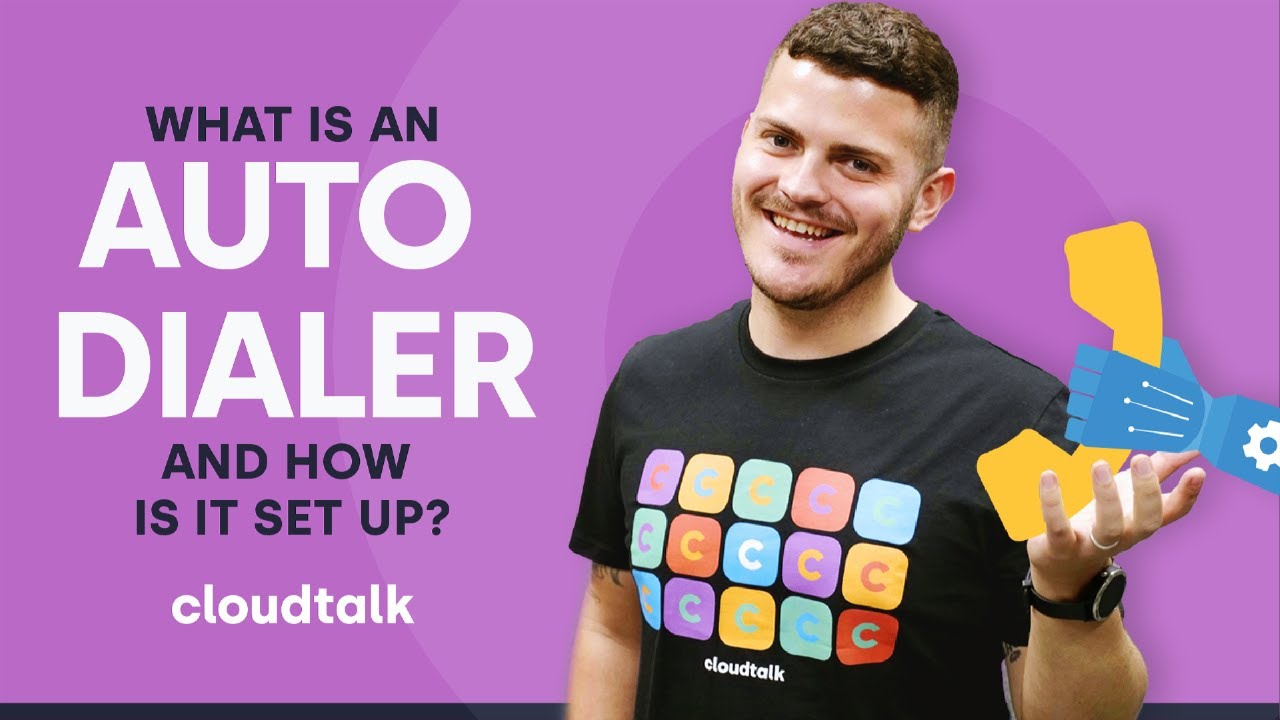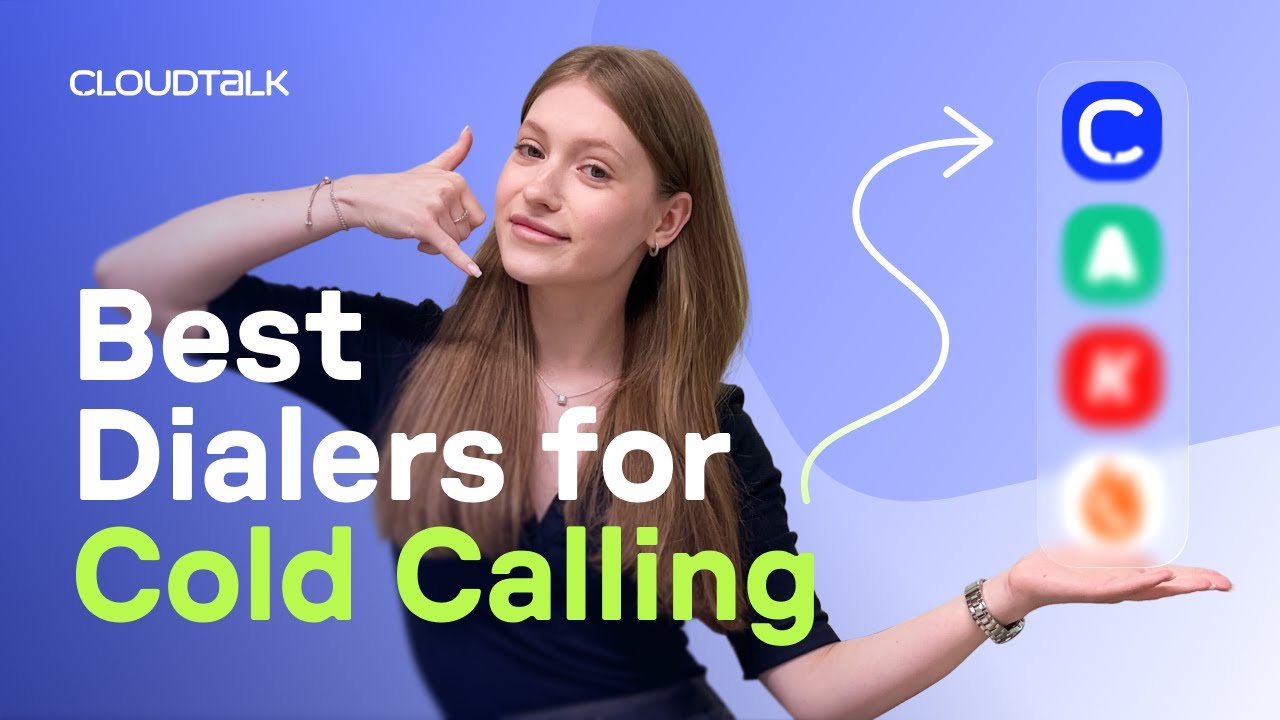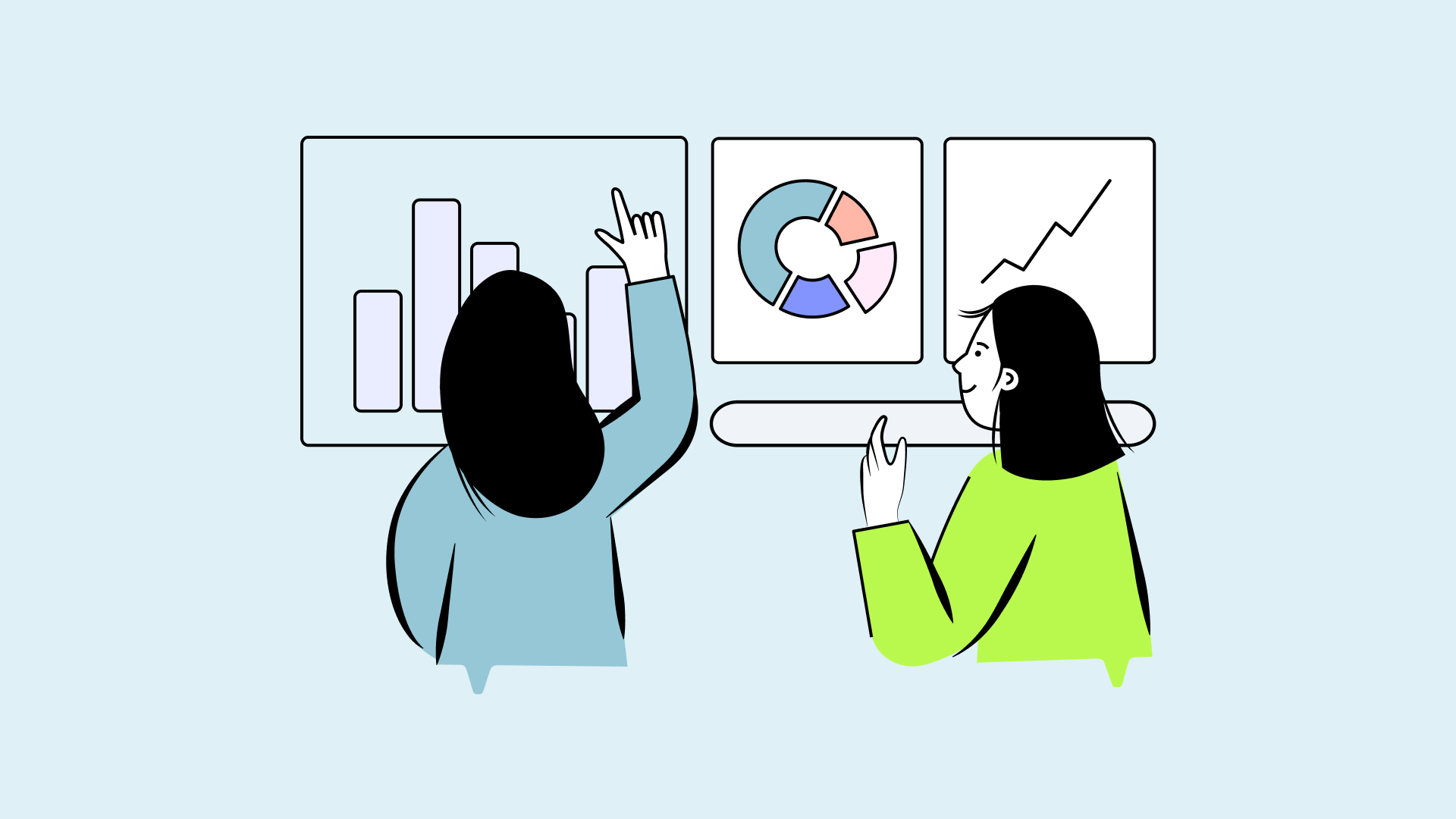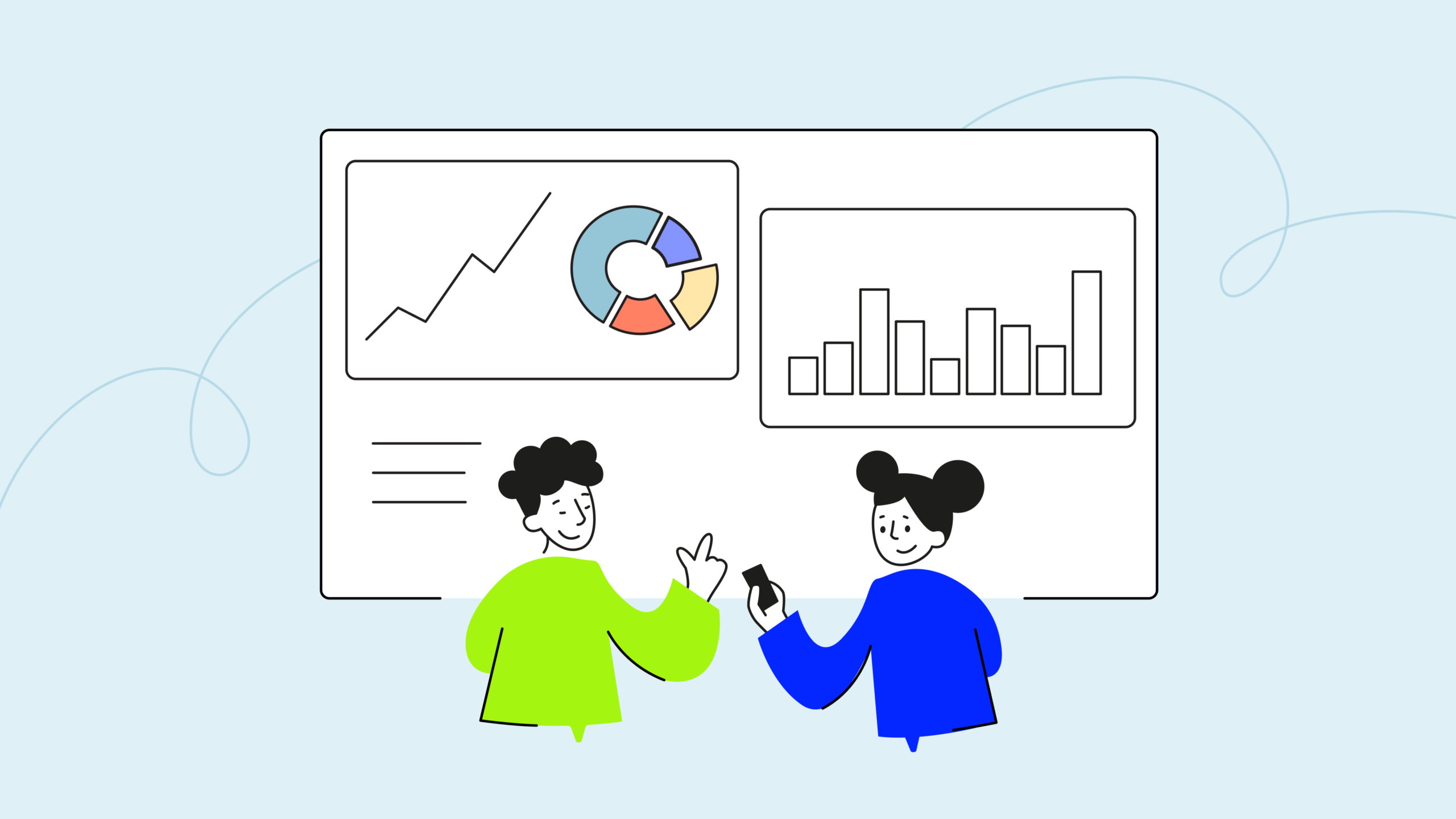
Sales reps using auto dialer systems can make up to 300% more calls per day than those dialing manually. And they do it with better pacing, fewer mistakes, and more talk time.
In this auto dialer overview and setup, we’ll break down how auto dialers work, the key types, how to stay legal and how to pick the best dialer for your team. Keep reading to learn how to make automated calls that actually make a difference.
Key Takeaways
- Auto dialer software helps teams scale outbound calls, boost productivity, and cut manual tasks.
- Choosing the right auto dialer system depends on your goals, team size, and dialing needs.
- A good call center auto dialer offers CRM integrations, smart automation, and built-in analytics.
What Is an Auto Dialer?
An auto dialer is software that automatically calls phone numbers from a list and connects answered calls to agents or plays a recorded message. It’s used in outbound sales, customer support, and call centers to increase efficiency and reduce manual dialing.
Have a look at the short video below for a brief auto dialer overview and setup.
How Does an Auto Dialer Work?
An auto dialer software works by automatically calling a list of phone numbers—eliminating the need for manual dialing. Once a call connects, the system can route the caller to a live agent, play a pre-recorded message, trigger an IVR menu, or leave a voicemail, depending on your configuration. (You can even use an AI voice agent).
Smarter auto dialer systems can even detect whether a call was answered by a person or an answering machine. And with AI-powered tools, the system can learn over time—adjusting dialing pace and logic based on pickup rates and call outcomes to increase efficiency and connection rates.ation.
Save time, reduce costs and help your team close more deals with our cloud-based auto dialer.
Types of Auto Dialer Software
In the video below we explain the different types of auto dialer software plus we help you choose the best one for you.
Auto dialers vary in sophistication and functionality, each designed to address specific outbound calling needs. The right choice depends on your call volume, team size, and campaign objectives.
Power Dialer
Power dialers automatically work through contact lists, dialing one number at a time for each available agent. This automatic call dialer mode eliminates manual dialing, helping agents stay focused on conversations—not logistics.
Unlike predictive or parallel systems, power dialers prioritize control and personalization while still boosting call volume. They’re commonly used in cloud-based auto dialer platforms where simplicity and speed are key.
Best for: Fast-paced sales teams prioritizing volume over personalization—like cold calling campaigns.
Predictive Dialer
Predictive dialers use algorithms to forecast when agents will become available, then dial multiple numbers at once to minimize downtime. This type of automated phone dialer maximizes efficiency by connecting live calls as soon as agents wrap up their previous ones.
While highly effective, predictive auto dialer systems are best suited for large teams—typically call centers with 20+ agents—where the system has enough data to accurately predict pacing and avoid dropped calls.
Best for: High-volume call center auto dialer operations focused on maximizing connect rates and agent productivity at scale.
Parallel Dialer
A parallel dialer is a type of auto dialer system that takes efficiency to the next level by calling multiple numbers at once for a single agent. As soon as someone answers, the automatic call dialer connects the live call and drops the rest—skipping ringing, voicemails, and dead air.
Unlike predictive dialers, which analyze team-wide availability, the parallel dialer focuses on maximizing output for individual agents. It’s one of the fastest types of dialer available, ideal for teams running high-speed outbound campaigns where every second counts.
Often used in auto dialer software for call centers, this dialing mode helps reps move through lists quickly, connect with more leads, and boost overall productivity without adding more headcount.
Best for: Sales reps or SDRs running fast-paced outreach campaigns where speed and volume matter more than personalization.
Preview Dialer
Preview dialers give agents time to review customer information before initiating calls, making them ideal for high-value, complex sales conversations. With an automated phone dialer, the agent—not the system—controls when to place each call, ensuring they’re fully prepared before connecting.
This type of auto dialer software is perfect for teams that prioritize quality over speed. It allows agents to personalize their outreach using CRM data, improving both the customer experience and conversion rates.
Best for: Targeted outreach and complex conversations where agents need prep time and context.
Progressive Dialer
Progressive dialers automatically place calls as soon as agents become available, maintaining a steady workflow without overwhelming your team. Unlike more aggressive auto call dialer modes, this setup ensures each call connects to a live agent who’s ready to talk.
By combining the speed of a power dialer with the context-awareness of a preview dialer, progressive systems strike a balance between volume and quality—making them a flexible option within modern auto dialer systems.
Best for: B2B sales teams or smaller call centers needing a balance of efficiency and call quality.
5 Benefits of Auto Dialer Software
From their humble beginnings as a solution to switchboard disputes, auto dialers have evolved into powerful business tools.
Modern auto dialer systems blend automation with intelligent features to solve core business challenges. By eliminating manual dialing, enhancing data management, and enabling global reach, auto dialers help teams scale their outreach while maintaining personal connections.
1. Increased Call Volume and Agent Productivity
Sales teams using auto dialers make 150–200 calls daily compared to 50–60 with manual dialing. CloudTalk customers like DentaKey report 2.5x growth in call volume over eight months. Auto dialer software eliminates manual dialing tasks, letting agents focus on meaningful conversations.
2. Enhanced Customer Experience
Smart number routing increases answer rates by matching caller IDs to prospect locations. Companies achieve 82% better customer reach through intelligent contact management. An auto dialer system integrates with CRM systems to provide agents with relevant customer data before each call.
3. Improved Data Management and Analytics
Real-time analytics dashboards track key performance metrics across all calling campaigns. Teams gain instant access to call recordings, transcripts, and performance data. This visibility helps managers optimize campaigns and improve training, resulting in 25% increased talk time efficiency.
4. Global Reach and Number Management
Access to phone numbers across 160+ countries enables truly global outreach campaigns. Smart number management reduces spam flags and improves answer rates by up to 30%. Teams maintain a local presence while scaling internationally through automated number selection.
5. Cost Optimization and ROI
Automated dialing reduces agent idle time by 25% and eliminates manual data entry. Integration with existing tools streamlines workflows and reduces operational costs. Teams handle higher call volumes without increasing headcount, maximizing resource utilization.
Give your outbound team smarter, faster calling—without the manual work or extra headcount.
Are Auto Dialers Legal?
Yes—auto dialers are legal, but their use is regulated. The legality depends on who you’re calling, how you’re calling them, and where they’re located.
In the U.S., for example, regulations like the Telephone Consumer Protection Act (TCPA) and Do Not Call (DNC) lists restrict how businesses can use automated phone dialers to contact consumers, especially on mobile numbers. In the EU, GDPR also governs consent and data handling in outbound campaigns.
To stay compliant with auto dialer laws:
- Get clear consent before dialing mobile or residential numbers.
- Avoid calling numbers on national DNC lists unless an exception applies.
- Use a call center auto dialer that offers built-in compliance tools like call time restrictions, opt-out management, and DNC scrubbing.
The 11 Best Auto Dialing Solutions in 2025
- CloudTalk: Cloud-based auto dialer software with Smart Dialer, Power Dialer, and AI features for SMB sales and support teams.
- Aircall: Easy-to-use auto call dialer with Power Dialer and seamless CRM integrations for growing teams.
- JustCall: Multi-mode auto dialer system (Predictive, Power, Dynamic) with SMS automation and AI coaching.
- Ringover: Call center auto dialer with Smart Dialer, analytics, and messaging for multichannel outbound.
- 8×8: Enterprise-ready auto dialer software for call centers with predictive dialing and omnichannel support.
- Dialpad: AI-powered automated phone dialer with real-time coaching, Power Dialer, and voice intelligence.
- Talkdesk: Predictive and progressive auto dialer system with compliance and workflow automation tools.
- RingCentral: Unified communications platform with call center auto dialer features and CRM integrations.
- Nextiva: Cloud-based auto dialer for small business teams, offering Power Dialer and VoIP essentials.
- Five9: High-volume call center auto dialer with predictive dialing, AI call routing, and CRM sync.
- Ooma: Affordable auto dialer software for SMBs with Power Dialer, virtual receptionist, and call forwarding.
How to Choose the Best Auto Dialer Software for Your Business
With so many auto dialer software options on the market, the key is finding the one that fits your workflow, team size, and growth goals. Here’s a simple step-by-step guide to help you make the right call—literally.
1. Identify your Business Requirements
Start by defining your use case. Are you managing a high-volume outbound sales team? A small support desk? Or a hybrid call center? Clarifying your goals will narrow down which auto call dialer features matter most—like call routing, CRM syncing, or AI-powered coaching.
2. Explore different types of dialers
Not all dialers are created equal. Learn the pros and cons of power, predictive, preview, progressive, and parallel dialers to understand which aligns best with your team’s pace and personalization needs. (Need a refresher? Here’s a breakdown of the types of dialers).
3. Evaluate features and pricing
Look beyond the basic dialing mode. Consider built-in analytics, voicemail drop, CRM integrations, compliance tools, and call recording. And don’t forget pricing—depending on the size of your team, you may want to pay less for basic features or more for special types of dialers.
4. Check reviews and ask for referrals
Look for real-world feedback from companies like yours. Reviews on G2, Capterra, and TrustRadius can highlight hidden strengths or dealbreakers. Don’t hesitate to ask peers in your industry what automated phone dialer they trust most.
5. Test with free trials or live demos
Hands-on experience is gold. Most auto dialer systems offer free trials or interactive demos—use them to evaluate call quality, ease of use, and how well the dialer fits your workflow.
6. Choose a provider you can grow with
The best auto dialer for call centers isn’t just about features—it’s about long-term reliability and support. Look for providers that offer great onboarding, active support, and regular product improvements.
Compare Auto Dialer features, pricing, and what you get at every tier in our full breakdown:
How to Implement Auto Dialers in 6 Simple Steps
Getting started with auto dialer software doesn’t have to be a technical minefield. Whether you’re adopting a cloud-based auto dialer or upgrading your current system, here’s how to roll it out in six clear, confidence-boosting steps:
1. Assess Your Business Needs
Before choosing a tool, identify your calling goals. Are you running high-volume sales outreach? Personalized support follow-ups? The answer determines the type of dialer (like power or predictive) that fits best.
2. Choose the Right Auto Dialer Software
Select a platform that aligns with your needs, budget, and workflows. Look for tools with CRM integration, real-time analytics, and flexible dialing modes.
3. Integrate with Existing Systems
To maximize efficiency, connect your auto dialer system with tools your team already uses—like your CRM, helpdesk, or sales platform. Many call center auto dialer tools offer native integrations or open APIs to keep everything synced.
4. Set Up Automation Rules
Configure your automated phone dialer with rules for call timing, voicemail drops, call routing, and DNC list filtering. This ensures every call is delivered efficiently—and compliantly.
5. Train Your Staff
Even the best auto dialer won’t work if your team doesn’t know how to use it. Provide onboarding on how to handle live connections, use call scripts, tag calls, and review analytics for continuous improvement.
6. Monitor and Optimize Performance
Track KPIs like connection rate, talk time, and calls per hour. Use built-in analytics to tweak pacing, call scripts, or workflows. Optimization is ongoing—especially if you’re using an AI-powered auto dialer that learns over time.
It’s Time to Simplify Outbound Calling
From dialing modes to legal compliance, you’ve now got a clear picture of what auto dialer software can do—and how to choose the right one.
Whether you’re running a lean sales team or managing a full call center auto dialer setup, the right tool will help you scale calls, save time, and close more deals. And if you’re ready to move fast without compromising on quality?
CloudTalk makes it easy. while maintaining the personal touch that closes deals. Whether you’re expanding your sales team or strengthening customer support, the right auto dialer turns your ambitious goals into achievable results.



































